|
Umberto Eco With Italy as the guest of honour at the 26th Abu Dhabi International Book Fair, who better to represent that country than its brilliant writer Umberto Eco, who sadly passed away in February of this year? And so it was that the late author was celebrated in a talk by Manuela Mircos, at Al-Multaqa literary salon at the venue. The speaker provided valuable insight into the author's work and life, particularly his internationally renowned novel 'The Name of the Rose'. Mircos also told of her personal joy when it came to Eco's columns in one of Italy's leading papers as he wrote on diverse topics from ISIS to much less trivial topics as whether dogs could actually speak. Contributing to the occasion, Al-Multaqa Director and Founder Mrs. Asma Siddiq Al-Muttawa in collaboration with Salah Hithani launched the latest of Al-Multaqa publications entitled 'Umberto Eco' in Arabic, which gives a summary of the author's life and achievements as well as an interview conducted by Lila Azam Zanganeh, and translated to the Arabic by Ra'ouf Alwan. Copies are free to collect at the salon. International Prize for Arabic Fiction
Of course, being the day after the announcement of the most important prize in Arab fiction it was only natural that the winner, Palestinian writer Rabai al Madhoun, as well as the shortlisted authors for the prize would be there to meet readers and to talk about their works. It seemed many had enjoyed reading Al Madhoun's book 'Destinies: Concerto of the Holocaust and the Nakba' and most were familiar with his previous novel 'The Lady From Tel Aviv' which was published in 2010 and was translated into English (see video link of al Madhoun talking about this novel HERE). On the other hand, the author who practically stole the show, and left feeling like a rock star, was Moroccan author, Tareq Bakari, who blew the crowd away with his profound views and articulate well measured answers. He is charismatic, extremely well-read and played the audience like a well tuned violin. This young author's debut novel 'Numedia' (2015) was shortlisted for this year's IPAF and he has published numerous articles and pieces of creative writing, both in print and online.
0 Comments
'Destinies: Concerto of the Holocaust and the Nakba' by Rabai al-Madhoun was tonight, Tuesday 26 April 2016, announced as the winner of the ninth International Prize for Arabic Fiction (IPAF). The novel, published by Maktabat Kul Shee (Haifa, Palestine), was named winner by this year’s Chair of Judges, Emirati poet and academic Amina Thiban, at a ceremony in Abu Dhabi. In addition to winning $50,000, Rabai al-Madhoun is guaranteed an English translation of his novel, as well as an increase in book sales and international recognition.
Rabai al-Madhoun, Palestinian-born but now a British citizen, lives and works in London as an editor for Al-Sharq Al-Awsat newspaper. Al-Madhoun’s family emigrated from Ashkelon, Palestine – now Israel – to the Gaza strip after the 1948 Nakba exodus. Leaving Gaza to attend Alexandria University, he later became involved with the Palestinian liberation struggle as a member of the Democratic Front for the Liberation of Palestine. He left activism in 1980 to focus on writing and has written a number of works of fiction and non-fiction. This is the 70-year-old author’s third novel. His 2010 novel, 'The Lady from Tel Aviv', was shortlisted for the 2010 International Prize for Arabic Fiction. It was subsequently published in English by Telegram Books in 2013 and won the English PEN Writers in Translation award that year. A pioneering novel written in four parts, Destinies chronicles Palestinian life both in occupation and exile. Each part representing a concerto movement, the novel looks at the holocaust, the Palestinian exodus from Israel in 1948 (known as the Nakba) and the Palestinian right to return. It is a novel of Palestine from outside and from within. It examines everyday Palestinian life, telling the story of Palestinians living under occupation and compelled to assume Israeli nationality, as well as exiled Palestinians trying to return to their now-occupied home country. After weeks of celebrating all six books on the remarkable shortlist, Suzanne O’Sullivan has been announced as the winner of the Wellcome Book Prize 2016 for ‘It’s All in Your Head’.
‘It’s All in Your Head’ is Suzanne’s first book, a focused look at the range of debilitating illnesses that are medically unexplained. We all exhibit physical responses to emotion – from blushing and laughter to palpitations and stomach ache – yet sometimes these expressions can be much more debilitating, causing seizures, paralysis and even blindness, and the stigmatisation associated with such a diagnosis is profound. Charlotte Wood has been announced as winner of the 2016 Stella Prize for her novel 'The Natural Way of Things' at a ceremony that took place at the Sydney Opera House on Tuesday. The winner received $50,000, sponsored this year by National Australia Bank. The winning novel will be published in the UK and North America this year and the novel has already been optioned as a feature film.
The Stella Prize celebrates Australian women’s contribution to literature. It was awarded for the first time in 2013 to Carrie Tiffany for Mateship with Birds. In 2014, the winner was Clare Wright for The Forgotten Rebels of Eureka, and in 2015 the winner was Emily Bitto for The Strays. Brenda Walker, Chair of the 2016 judging panel, says of the winning book: “The Natural Way of Things is a novel of – and for – our times, explosive yet written with artful, incisive coolness. It parodies, with steely seriousness, the state of being visible and female in contemporary Western society. “With an unflinching eye and audacious imagination, Charlotte Wood carries us from a nightmare of helplessness and despair to a fantasy of revenge and reckoning. The Natural Way of Things is a riveting and necessary act of critique.” by Rana Asfour It seems that wherever Joumana Haddad goes, controversy is never too far behind. She is the author of the 2010 bestseller ‘I Killed Sheherazade’, a provocative book in which she challenged prevalent notions of identity and womanhood in the Middle East and spoke of how she came to create the Arab world's first erotic literary magazine, Jasad (Body), that has earned her both admiration and censure. That was followed by ‘Superman is an Arab’ which she wrote in 2012 and was described as a howl in the face of a particular species of men: the macho species, 'Supermen', as they like to envision themselves. Haddad rallied for the vital need for a new masculinity in the times of revolution and change in the Middle East. And now this charismatic, and enigmatic Lebanese poet, author, journalist, academic and human rights activist is back with a new release ‘The Third Sex’, a final panel that makes up the triptych she confesses to always have had in mind since the release of her first book. It is by far the more mature of her writings, with less sex but far from subdued nevertheless. In fact she writes that the ‘anger, indignation and revolt are all here, in this new book, even more ardent than before’, and I can assure you, she’s not kidding. ‘The Third Sex’ is Joumana Haddad’s ‘personal life experience … meant to show the real wound from where the ideas, aspirations and propositions have bled’ culminating in the birth of this book in which she encourages the human race to re-discover its humanity and emerge a Humanus –Latin for Humane, a ‘Third Sex’; one that Haddad defines in her introductory note as ‘a human being transcending his/her differences (not cancelling them); a human being transcending his/her characteristics (not denying them); but most of all, a human being transcending everything that infuses hatred and ill-will in him/her. A human being stripped of all classifications and influences, except his/her humaneness’. The book’s timely release is its major saving grace. It launches at a time when the world is witnessing barbaric acts of terrorism, and an Arab world that is having to deal with the repercussions of a spring revolt that has proven itself a bitter harsh winter instead. Therefore, it is particularly imperative in these challenging times that books such as Haddad’s serve as reminders that we are not all monsters and there is yet hope for mankind. What she advocates is an internal confrontation with the self that is well overdue in a last bid to preserving our humaneness – the essence of what defines us. Haddad in short is calling for a revolution: A Humane one to save mankind. The book is divided into seven chapters with each one highlighting a particular quality that the author felt she ‘needed to acquire, nourish and develop in ‘Operation Humanus’: the Fighter, the Truthful, the Thinker, the Listener, the Compassionate, the Proud and the Rebellious’. Each of these stories consists of three segments: The Story, the Destination and the Dialogue where the pros and cons battle it out in a ‘sort of intellectual musing with the demons that hiss in our heads’. Haddad’s book is rife with her own stories; a chapter that tells of her grandmother’s suicide and her own battle with depression, another on childhood lies and prejudices, while another includes a humorous tale regarding specific and general definitions of identity and heritage. She includes a moving piece as tribute to her sons, and in another speaks candidly about what it took for a handsome boy called Toni to finally notice her and the day she discovered Barbara Streisand. There is a chapter on sex featuring a sleepy dick. And then there is Plato – the man himself – who has appointed the author his messenger to bring forth ideas he had missed in his ‘Republic’ – mainly ‘The Humane Being’. The great philosopher makes an appearance at the end of every chapter with advice he could have given on his deathbed. If by now, this is all seeming a bit confusing, then you’re definitely on the right path because quite frankly it is. ‘The Human World is a Book’ writes Haddad, ‘The difficult kind; the kind people call a ‘tough read’ that challenges your predetermined views, your prearranged dispositions and your ‘familiar territories’. However, if you stick with it long enough - then she promises you a Magical Book like ‘Alice in Wonderland’ or one that is as diverse as a Dictionary, as perplexing as a Borges Poem, as subversive as a Marquis de Sade’s novel, even as entertaining as a Shakespeare Play’ – her examples not mine. Not quite! – my words, not hers. Haddad advocates that our humaneness is our deliverance from the clutches of the afflictions of today’s social order that is built with ‘artificial measure units such as money, authority, sexual ‘norms’, gender, race, class, and so on and so forth’. And that in order to purge ourselves it is time we reconnected with the basic DNA of our being – our Humaneness – which is the one true element that can ‘stitch our dismantled and divided human family back together again’. My initial reaction when I finished reading ‘The Third Sex’ was to tweet about it as ‘a relevant discourse in present turbulent times’. I completely stand by my initial impression although I do fear she will find it slightly more difficult to rally as many recruits for her cause with her latest book. Haddad can string her words, a fact no body can deny and although she presents a fierce argument, she also veers towards self-agrandizement and the sensationalist and until she tones it down, the noise is too deafening to hear exactly what it is she’s trying to say. However, Haddad has never been one to shy away from addressing sticky issues even at the expense of sensationalising social taboos if it has meant getting her ideas across. So far it has worked and the accolades she has won are testament that she has done what others before have failed to do. And with this, her latest offering, readers can do far worse than to look inwards as a way to exude a better outward self especially if it translates into the collective advancement of all society to a better place, away from the destruction and the chaos. So, by all means, to that I say, Viva the revolution! About the author:
Joumana Haddad is a Lebanese poet, author, journalist, academic and human rights activist. She has been selected as one of the world's most 100 most powerful Arab women for the past two years by CEO magazine Middle East, for her political and cultural activism. She is the cultural editor of An Nahar newspaper, and the founder of JASAD magazine, a one of a kind erotic cultural magazine in Arabic. She has received many national and international awards and recognitions, and her previous books 'I killed Sheherazade' and 'Superman is an Arab' have been translated to more than 15 languages. Her other works include 'Lilith's Return', 'Mirrors of the Passers by' and the play 'Cages'.  The London Book Fair welcomed publishing professionals from over 124 countries, authors and aspiring writers to a successful 45th Fair. From top author visits from Julian Fellowes, Jeffery Archer, Peter James, Marian Keyes, Judith Kerr, Tracy Chevalier, Jeanette Winterson and more, to six-figure book deals brokered and the best new talent discovered, The 45th London Book Fair 2016 was a vibrant showcase of international publishing and a bustling centre for rights negotiation. Here are the fair's 2016 Top Deals: - Hutchinson is to publish 'The Raqqa Diaries: Life Inside the Islamic State' by Syrian activist Mohammed. Jocasta Hamilton, publishing director at Hutchinson, acquired world rights directly from the author. (The Bookseller) - Nobel Laureate Ohran Pamuk and Costa-winner Sebastian Barry have signed “major” new deals with Faber, while publisher Mitzi Angel has snapped up two “provocative” titles from UK academic Jacqueline Rose. - Nadiya Hussain, winner of “The Great British Bake Off” in 2015, will write three contemporary women’s fiction novels for Harlequin imprint HQ. - The ultimate make-up book, Face, by sibling vloggers Sam and Nic Chapmen has been acquired by Blink Publishing. - Production company Playground has TV rights to Fiona Barton’s The Widow (Bantam) and Thomas Grant’s biography Jeremy Hutchinson’s Case History (John Murray). - To mark the 150th anniversary of The Jungle Book, Macmillan Children’s Books have inked a deal for world English-language rights to a brand new survival book from Bear Grylls. Aimed at 10+ readers, the book is inspired by Rudyard Kipling’s title and is full of survival tips and will publish in October. - HarperCollins has signed a new four-book deal with Cecelia Ahern. - Portobello has signed a “masterpiece” by Man Booker International Prize-nominated author Han Kang. World English-language rights by The White Book have been sold to Max Porter. Source: press release Abu Dhabi Tourism & Culture Authority (TCA Abu Dhabi) has announced that the Arabic-Islamic philosopher Ibn Rushd will be the Personality of the Year at this year’s Abu Dhabi International Book Fair (ADIBF).
The event, which will take place from 27 April to 3 May at the Abu Dhabi National Exhibition Centre (ADNEC), will celebrate influential cultural figures, both international and Arabic. Under the patronage of His Highness Sheikh Mohamed bin Zayed Al Nahyan, Crown Prince of Abu Dhabi and Deputy Supreme Commander of the UAE Armed Forces, ADIBF will aim to highlight Ibn Rushd’s character in a dedicated pavilion that will showcase his life and legacy. A part of the exhibition’s cultural programme will also be dedicated to discussing his character, influence and works. Italy is 'Guest of Honour' at ADIBF Italy, the exhibition’s guest of honour, will also be celebrated through an integrated programme that consists of cultural and professional events and activities for kids. Italy will also feature in the Cooking Corner and the Artists Corner, which will shed the light on the cultural dialogue between Emiratis and Italians. Italy will use its dedicated programme to highlight its literature through a series of talks from a group of prominent authors, poets and academics. Italian publishers will also participate at a dedicated pavilion displaying the most important literary and scientific publications. The Italian programme will also consist of a number of lectures and discussions with an array of speakers specialising in the publishing sector and education. The topics include: ‘Storytelling and history writing’ by Valerio Massimo Manfredi ‘From Paper to the Screen: The Importance of Character’ by Antonio Mancini ‘The Italy of Tomorrow: fantasy, illustrations and novels for young people’ discussed by Beatrice Masini and Lishiah Troysa ‘Saints, Navigators… and poets? Italian poetry in the third millennium’ with Valerio Magrelli ‘Based on true stories: When history inspires novels’ with Louis Garneray ‘On the doorstep of a New Renaissance: Reference books on the future of the art’ with Melania Mazzucco and Vincenzo Trione. The shortlisted books are as follows:
Cynthia Bond: Ruby Anne Enright: The Green Road Lisa McInerney: The Glorious Heresies Elizabeth McKenzie: The Portable Veblen Hannah Rothschild: The Improbability of Love Hanya Yanagihara: A Little Life To stay in the loop about this year’s Baileys Women’s Prize for Fiction and for a chance to win the shortlist, follow them on Facebook, Twitter and Instagram. Sunday Non Fiction: 'My House in Damascus: An Inside View of the Syrian Crisis' by Diane Darke10/4/2016 by Rana Asfour First published in 2014 and now in its third (and revised) edition, 'My House in Damascus' is part memoir about British writer and author Diana Darke's time in the Middle East, particularly Syria and also part memoir about her beloved Bait Baroudi - 'The House of the Gunpowder Seller' - a house she bought in 2005 and then restored within the walls of the Old City of Damascus making her one of the few foreigners to do so.
Of course, come 2011 and the sense of peace and belonging that Darke had found in Bait Baroudi came to a shattering end with the Syrian's march against their ruler Bashar Al Assad. Suddenly her oasis of tranquility was no more, her friendships with those closest to her were tested, and her ownership of the house compromised. With her house now in use as a refuge for displaced friends, her links with Syria are deep and ongoing. She has been back six times since the crises began, most recently to retake her house from war profiteers and remains actively committed to helping Syrians achieve a better future. Noteworthy to mention that this is not by any means a book about politics although, as is expected, it is far from being devoid of it either. However as one follows the writer's daily experiences with the mixed communities in her neighbourhood (Christian, Sunni, Shi'a) one feels uniquely privileged to receive a first person account of the conditions that the general population of Syria have to deal with as the various political Syrian and non-Syrian factions clash for power, as they leave a trail of blood in their wake. Diane Darke is a fluent Arabic speaker and as such her choice of various Arabic proverbs and sayings are spot on and reflect a writer who is not only well versed in the Arabic language but also mindful of the region's traditions and rich political, religious and cultural history. That said, the historical record that Darke provides regarding the Syrian cities and their inhabitants is one of the most accurate accounts I've come across in a while. Yet, even they are kept brief. The book is written 'with the pace of a novel and the colour of the best travel writing' as described by the Times Literary Supplement. The author does a superb job seamlessly bringing together the past and the present to give a fuller and 'clearer understanding of why the country remains locked in conflict and why most ordinary Syrians are caught between a repressive government and a splintering opposition, now overshadowed by a monster called ISIS'. Diane Darke graduated in Arabic from Oxford University and started her career working for the British Government's General Communications Headquarters (GCHQ) in Cheltenham. She went on to specialise in the Middle East for over 35 years, living and working in a range of Arab countries as an Arabic translator and consultant for both public and private sectors. Along the way she authored 16 travel guides to the region, including Bradt's Syria, Eastern Turkey and Oman. She is recognised as a fully independent Middle East specialist, and has written for the BBC website, The Sunday Times, The Guardian, The Daily Telegraph and The Financial Times and has been a regular broadcaster on BBC Radio 4's From Our Own Correspondent. For more on the author, visit her website HERE. The Shaikh Zayed Book Award announced the names of the winners of its tenth edition (2015-2016) following the Board of Trustees’ meeting last week, which marked the last step in the selection process.
The awards and winning book titles are as follows: Contribution to the Development of Nations Award went to 'Al-Sarab' (The Mirage) by Jamal Sanad Al-Suwaidi from UAE, published by The Emirates Centre for Strategic Studies and Research, 2015. The study focuses on the emergence of politicised religious groups and conducts a multilevel analysis of their religious thought and political ideologies The study also seeks to provide an understanding of the obstacles hindering development, modernisation, and progress in the Arab World. The Literature Award went to 'Ma Wara’a al-Kitaba' (Beyond Writing) by Egyptian novelist Ibrahim Abdelmeguid, published in 2014 by Al-Dar Al-Masriyah Al-Lubnaniyah, Cairo. The book narrates the author’s experiences on which his novels were based and provides a creative view of the political, social and cultural contexts within which the books were written. The Literary and Art Criticism Award went to 'Al-Fikr al-Adabi al-‘Arabi' (Arabic Literary Thought) by the Moroccan Said Yaktine, published in 2014 by Difaf Publishing, Beirut. The study combines between theory and practice in contemporary criticism in Arabic and is both comprehensive in coverage and innovative in approach. The Translation Award went to the translation by the Iraqi Keyan Yahya of 'The Meaning of Meaning' by Ogden and Richards. The translation was published in 2015 by Dar al-Kitab al-Jadeed, Beirut. This is the first translation of the book in Arabic after more than ninety years of its publication. The study is a landmark in the philosophy of language. The Arab Culture in Other Languages Award went to ‘Angles et Grandeur’ by Egyptian author Roshdi Rashed, published in 2015 by the Walter De Gruyter, Berlin. The study discusses the concept of angle and its relation to Archimedean and non-Archimedean theories of measurement, tracing the history of discussions from Euclid to Kamal al-Din al-Farisi. The volume presents first editions of over twenty texts, either in Arabic or Greek by the greatest mathematicians and philosophers of the time. The texts are translated into French and supplemented with extensive commentary. The Publishing and Technology Award went to Dar Al-Saqi. This publishing house has adopted, ever since its establishment in London in 1979, a broad-minded cultural project and published a wide spectrum of serious books in thought, science, and art. Several of its publications won awards in various categories covered by the Sheikh Zayed Book Award. Meanwhile, titles in both ‘Children’s Literature’ and ‘Young Author’ categories did not meet the Award’s standards. Consequently, the Board of Trustees opted to withhold the awards allocated to them. However, the Cultural Personality of the Year will be announced in a few days. The Award ceremony will take place on May 1st, 2016 [along the Abu Dhabi International Book Fair] where the winner of Cultural Personality of the Year will receive a prize of AED 1,000,000, a gold medal bearing the Shaikh Zayed Book Award logo, and a certificate of merit. Each of the winners of the Award’s other eight categories will receive AED 750,000, a gold medal and a certificate of merit. The total nominations for the current cycle amounted to 1169 in the announced categories, 120 of which made it to the long list. The nominations came from 33 countries including Algeria, Morocco, Jordan, Egypt, Lebanon, Qatar, Kuwait, UK, France and Holland, according to UAE News Agency (WAM). Source: Press Release by Rana Asfour Jasmine Elizabeth Nazheer has been bequeathed the sum of £7.6 million as well as the full ownership of her late mother’s British estate. However, Jasmine’s access to her inheritance is stalled when the solicitor announces that her mother had requested that the funds weren’t to be released until after Jasmine’s father countersigns. This is a major problem. Jasmine’s father, Ibrahim Nazheer, a Palestinian who had left them years before to return to his homeland, has been missing for nearly a decade and his daughter has no idea where to start looking for him. They had assumed he was dead ‘but the Israeli government had refused to issue a death certificate. Still, Jasmine's mother did her own burial in the ruins of the home they once shared. This part of the house, beneath the floorboards, became his resting place. The furniture, if uncovered, would reveal their life just as it was before he had gone'. As if that were not enough, Jasmine is further informed that she has ten days in which to determine the whereabouts of her father or whether he is, in fact, still alive, else the will expires and she is rendered penniless. Weighing her options and furious at her dead mother, Jasmine finally decides that her only solution lies in returning to Palestine to search for her father and get the matter resolved as quickly and painlessly as possible. Unearthing a trunk of her father’s belongings that had been delivered to the mansion by a young boy with an Arabic accent, several years after her father had last been seen, Jasmine tries to piece together the information she gleans from its contents trying to determine where her search is to begin. It is in the trunk that she finds a stack of letters, bound together with string and edged in a navy and white pattern, as well as newspaper articles, maps and missing person posters, from which her father’s face stares back at her. Armed with these letters, her father’s prayer beads and a long ago photograph of a hyena in its moment of rage ‘as it bashed the cage, its body twisted and its teeth stained with blood’ inducing a chilling memory to resurface, Jasmine is now ready for her journey back to her father’s land. Shortly after arriving in Palestine, Jasmine meets the mysterious Josh, a stranger who not only causes her heart to flutter but ‘in whose presence the sun barely broke through and the sea retreated’. Placing her trust in him, the two become somewhat of an item as he promises to help her on her journey. And so begins a tale that is immersed in the history of an uprooted nation, that has seen the larger part of its people forced into fleeing their homes from the terror unleashed on the day Israel declared its state. For those Palestinians who chose to remain behind, the occupation’s incessant humiliations and intimidation continue to be an everyday horror and Jasmine’s father’s family is no exception. ‘Jasmine Falling’ is a multi-layered novel in that it oscillates between the unresolved political narrative related to the Israeli-Palestinian conflict and the mystical, even mythical portrayal that seems tethered to any discourse or even work of literature wherever Jerusalem and Islam are concerned. And thus it is rather no surprise that the author conjures up the Jinn, and speaks of shadows and whisperings as if the place, Palestine, were a living breathing entity, a character holding its own within the structure of the novel, actively involved in the characters’ lives, etching its place into their individual narratives, refusing to be ignored. From the streets, the gates of the Old City loomed into view. They towered above her with locks clamped on either side of the open doors. A raven squawked from a perch on its walls, the sound splintering through her bones as she entered into the maze. Smoke hissed and escaped the kebab shops, shisha smoke blew from the lips of old men, drawn from decorated glass bulbs… The shops were made of the same mould, cut from ancient stone and formed from the natural concaves in the rock… The place itself felt familiar. It had barely changed in thousands of years despite the wars, crusades and occupations. A feeling of déjà vu crept into her bones, reminding her of the nightmares she used to have all those years ago as a child … ‘Don’t forget your heritage here, Jasmine. Don’t forget the land’s heritage. It is part of you’. Her father’s voice resonated in her head’ What distinctively sets this promising author’s work apart from other recently released, arguably more polished fiction on the same subject is her intelligent choice to include the narrative of ‘the other’. There is a belief many share that literature opens up the world to readers, it allows them to ‘hear’ and ‘see’ and ‘feel’ the different points of view with regards the same event offering multiple perspectives on the world that may not be possible in real life. As such, the beautifully written letters of ‘Bert’ to his papa – possibly my favourite bits in the book - elevate not only the author’s writing style but also reflect a mature, confident writer behind them who believes in fair play. That said, there is no doubt where this author’s allegiances lie, and what her powerful messages are about; love, hope, resilience, faith and human compassion. Shereen Malherbe is one promising writer who is a definite contender on the scene and one to duly take note of. About the author
Shereen Malherbe is a writer, author & speaker who spends her time in the UK and the United Arab Emirates. Her work features in various newspapers, such as Middle East Eye, opinion columns, magazines and has represented non-profit organisations. She also writes for Muslimah Media Watch about the representation of Muslim women in the media and pop culture. Shereen has appeared on British Muslim TV and the Islam Channel as a guest to talk about her novel and the representation of Muslim women in western media and currents topics such as Islamophobia. For more on the author, click HERE. by Rana Asfour Carl Logan is on the run. After two decades of loyal service, he's being framed for a murder he did not commit and branded a traitor to his firm, the Joint Intelligence Agency (JIA). But, Carl Logan refuses to go down without a fight and resolves to finally bring to a close what was started many years ago. Wanted by the Americans, the Russians as well as his own agency, trained former 'wonder kid' and assassin Logan has gone from hunter to hunted leaving him with very few places to hide and even fewer people he can turn to for help. However, Logan is a man who will not slow down until he uncovers the truth and clears his name once and for all. Questions need to be answered and with few friends willing to help, and even less people he can trust, he's finding that his only way to survive the ride is in putting his trust into some of his oldest and worst enemies. One by one, agents and informants from all sides, all allegiances, are dying. And Carl Logan is the only man who can put a stop to it, once and for all. A powerful, breathtaking pursuit ensues in which Logan races against the clock. Time is quickly running out with the enemy fast closing in. There is hardly a moment for the reader to catch breath or try to make sense of what is going on, before the novel launches into a brilliant action packed new chapter. Old characters make an appearance, new ones are introduced, and as more of Carl Logan's past life unfurls we are offered insight into the mind of this enigmatic anti-hero. This may be a finale but one can only hope it is not the last we hear about a character that one has grown quite fond of. 'Hunt for the Enemy' is book 3 of the Enemy Series. The two previous include 'Dance with the Enemy' (book 1) & 'Rise of the Enemy' (book 2). ABOUT THE AUTHOR Rob is the author of the critically acclaimed and bestselling Enemy series of espionage thrillers featuring embattled agent Carl Logan. Rob began writing in 2009 following a promise to his wife, an avid reader, that he could pen a ‘can’t put down’ thriller. He worked for nearly 13 years for a global accounting firm after graduating from The University of Nottingham in 2002, specialising in forensic fraud investigations at both national and international levels. Rob now writes full time. Originally from the North East of England, Rob has lived and worked in a number of fast paced cities, including New York, and is now settled in the West Midlands with his wife and young sons. Check out his website HERE. 'Earth Weeps, Saturn Laughs' by Abdulaziz Al Farsi (translated by Nancy Robertson) Came upon this reading suggestion thanks to Arablit.org and very glad I did. Hadn't read any Omani literature and abudulaziz Al Farsi's splendid book has certainly whetted my appetite for more. This 229-page novel opens with the return of Khalid Bakhit, a government employee, to his hometown in Oman after a time away in the big city, and concludes with his return to the city with a new maturity born of a series of wrenching encounters with reality. Khalid's return home, sparked by his flight from a painful love affair, coincides with events that reveal the force of long-established traditions that have a stranglehold on the town: from racial prejudice, to religious bigotry, to ossified patterns of leadership. Khalid's awakening and transformation are catalysed by his encounters with a certain "Saturnine poet" who, in the course of chasing after an elusive ode, has stumbled upon this unnamed village. For a period of time "the Saturnine" becomes Khalid's closest companion: listening to his woes, helping him see himself with new eyes, and imparting to him a wisdom from a world beyond untainted by human smallness. The complete history of the village members unfolds as each chapter is narrated from the perspective of one of its inhabitants. It is a village that has had to weather several storms bringing its members closer together. Yet, the village's latest turmoils are unprecedented and are proving beyond anyone's control. The community is being torn between those who want change and those who will do everything in their power to keep things they way they are meant to be. As I'm on holiday, do read a thorough review HERE. 'Omani Folk Tales' by Hatim Al Taie and Joan Pickersgill Found this yesterday during my stay at one of Oman's most gorgeous resorts 'The Chedi'. It's published by Al Roya Press & Publishing House and is a collection of folktales by Hatim al Taie and Joan Pickersgill and sold at the Chedi's 'Boutique'.
The storytellers are from different regions in Oman and as the authors state in their introduction, 'although Oman's oral tradition is very rich and varied, unfortunately most of it is undocumented and therefore threatened by the progress of modern culture ... this collection was mainly collected while we were working on Oman: Comprehensive Guide' in the mid 1990s as we travelled all over the country to record places steeped in history and legend'. The selected stories fall into three main categories: the first are related to the supernatural, jinn and magic; the second reflect the power of the Sufi or Ulama, whose devotion to God has given them extra powers and respect; and the third are historical and involve Omani heroes who, because of their amazing courage, have been immortalised. |
Archives
March 2021
|


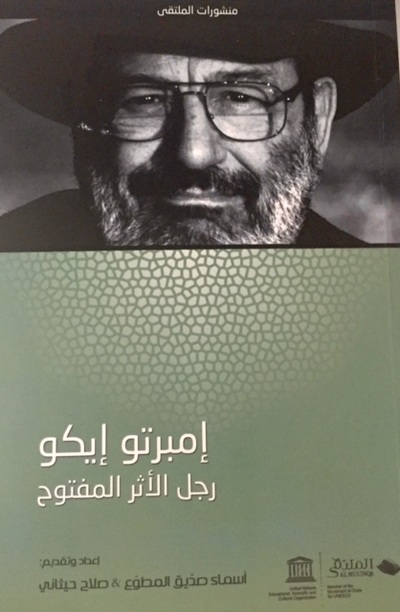
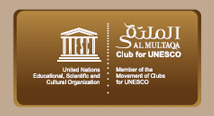
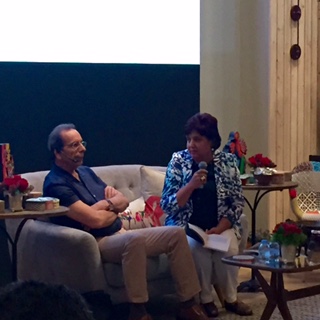
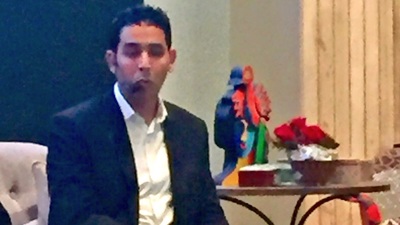
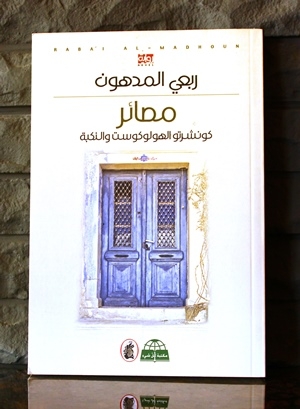
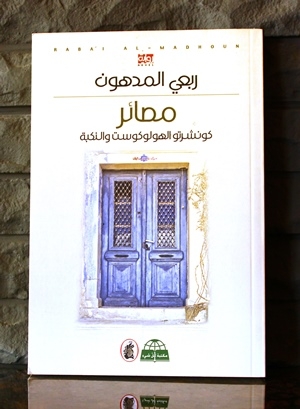
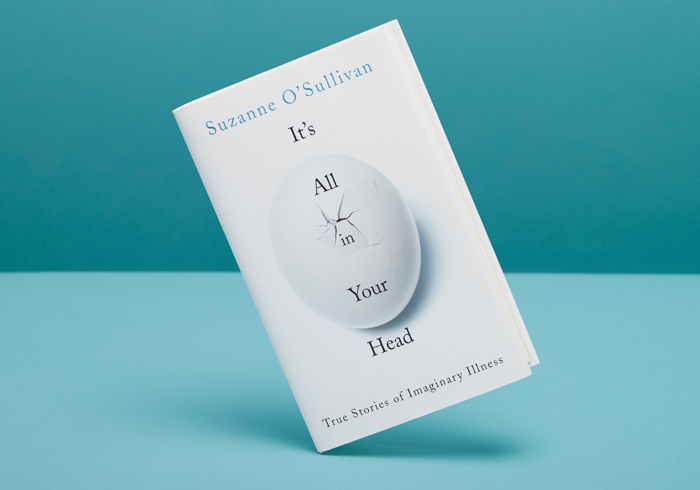
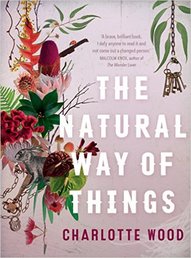
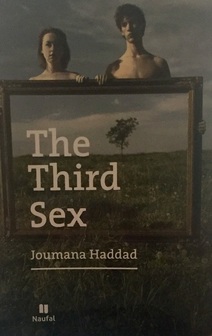
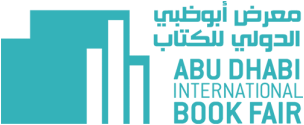
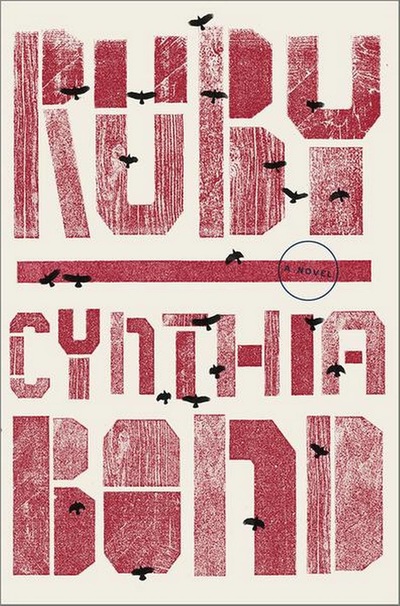
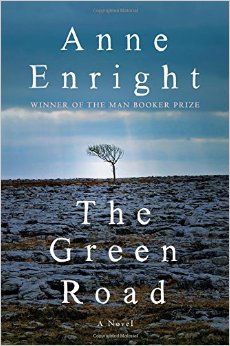
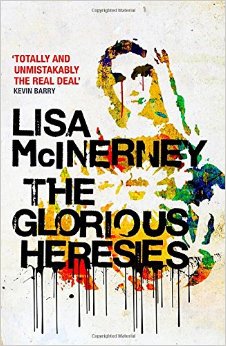
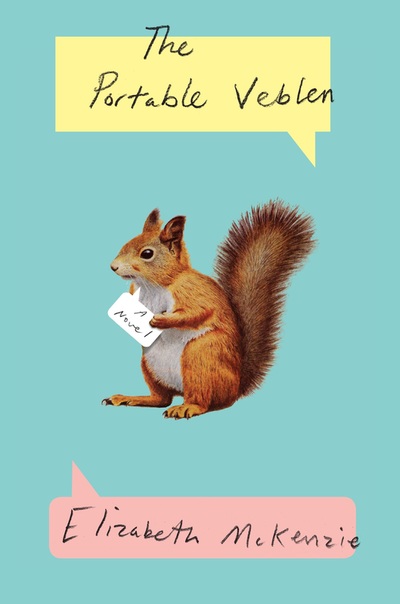
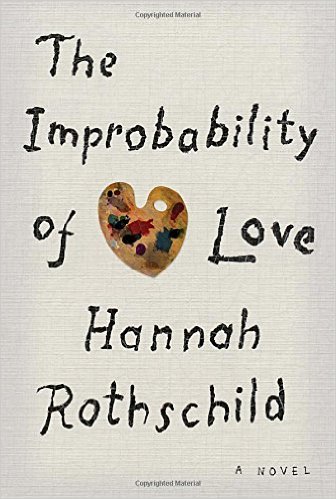
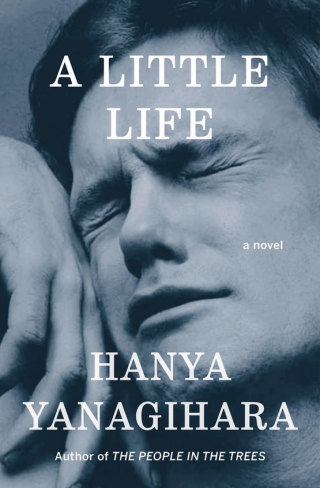
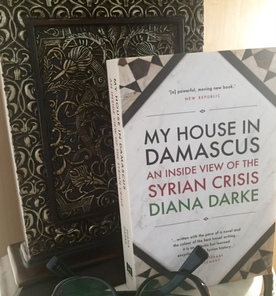
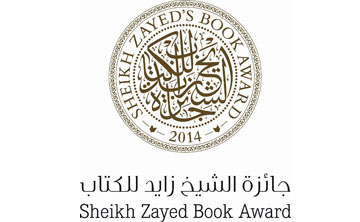
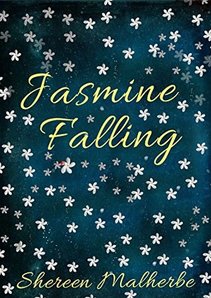
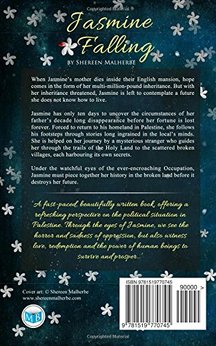
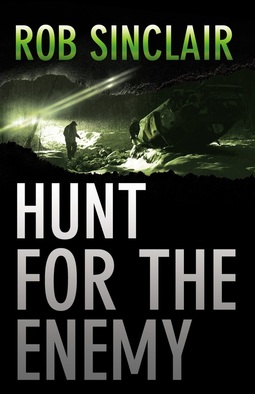
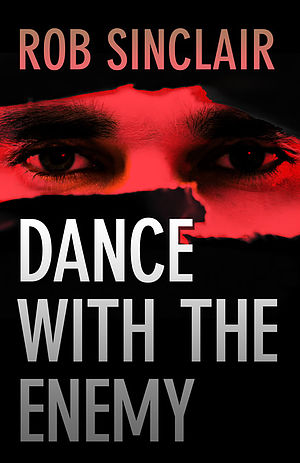
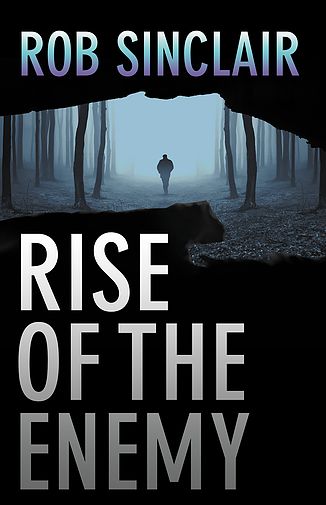
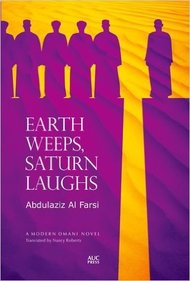
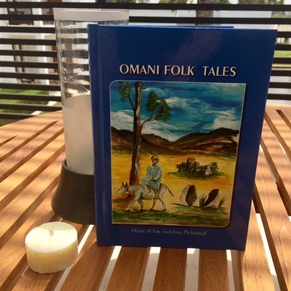


 RSS Feed
RSS Feed
